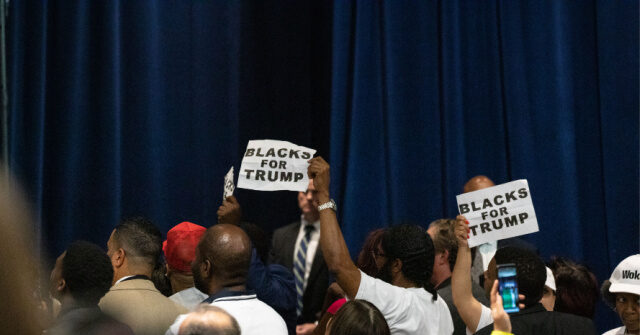A recent poll highlights a growing concern for Vice President Kamala Harris as she prepares for the 2024 presidential election. According to a New York Times/Siena College survey, Harris is experiencing a notable decline in support among Black voters compared to the robust backing they offered President Joe Biden in the 2020 election. The poll indicates that while nearly 80 percent of Black voters would vote for Harris, this figure shows a decrease from the 90 percent who supported Biden. Such a drop, if it persists, could jeopardize Harris’s prospects in crucial battleground states where Black voters play a significant role in election outcomes.
In a stark contrast, former President Donald Trump seems to be gaining traction with Black voters. The poll suggests a shift in perception regarding party loyalty, with some voters voicing skepticism about the Democratic Party’s ability to deliver on its promises. Many have expressed a belief that the Republican Party is more reliable in fulfilling its commitments to the electorate. This sentiment is echoed by individuals like LaPage Drake, a Texas tree removal service owner, who criticized the Democratic Party’s approach to engaging with Black voters, comparing it to offering “table scraps.” Drake’s endorsement of Trump underscores a growing inclination among some Black voters to seek representation in a party they feel has taken them for granted.
Former President Barack Obama recently acknowledged the troubling trend of reduced support for Harris among Black voters. During an event in Pittsburgh, he urged Harris’s supporters to recognize the stark choice presented in the upcoming election, particularly for Black men, many of whom may feel disconnected from Harris’s candidacy. Obama’s emphasis on shared experiences and understanding the struggles faced by Black communities seeks to galvanize support for Harris, highlighting the importance of connection in political loyalty.
Compounding Harris’s challenges is the finding from a Washington Post poll indicating that 24 percent of Black voters in Ohio favor Trump over her. This statistic reflects a significant potential threat to her campaign, as a loss of support in battleground states could diminish her chances of success in a tightly contested race. The dynamics of the electorate are shifting, and the reluctance among Black voters to fully embrace Harris may signal deeper issues within the Democratic strategy to engage this critical constituency.
The timeline before the November election is tight, and the Democratic Party’s once-solid advantage among Latino voters appears to be diminishing as well, adding another layer of complexity to Harris’s electoral prospects. Understanding the changing attitudes and priorities of various voter demographics will be vital for the Democratic Party as they attempt to mobilize support for Harris. The recent poll surveyed 589 Black voters between September 29 and October 6, emphasizing the need for authentic outreach and engagement that resonates with this essential voting group.
As the 2024 election nears, the implications of these polling trends can’t be understated. With Harris’s approval waning among Black voters and Trump gathering unexpected support, the stakes couldn’t be higher. The Democratic Party must assess its messaging and approach to ensure that it adequately addresses the needs and concerns of Black constituents, reinforcing the connection that once defined their voting behavior. The path ahead requires an honest reckoning with the factors at play to reinvigorate support and reclaim the narrative before voters head to the polls.

